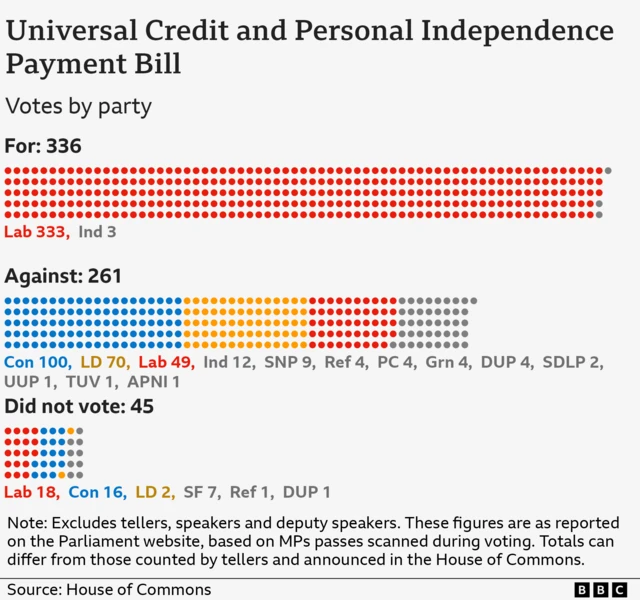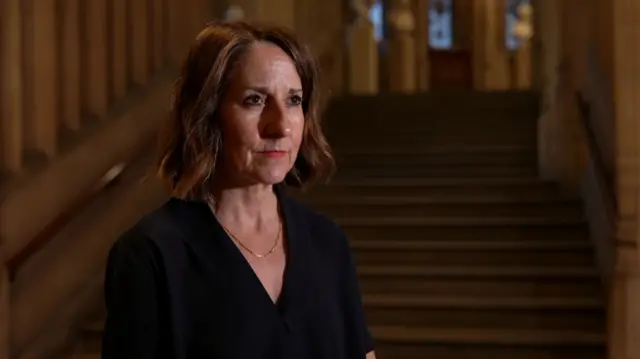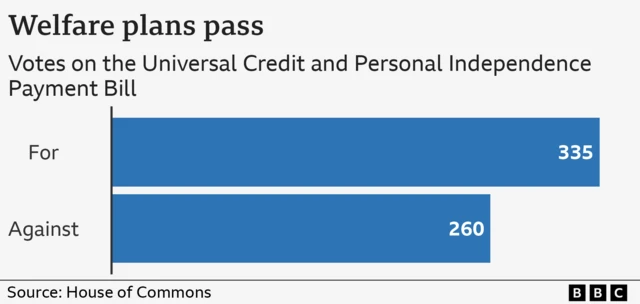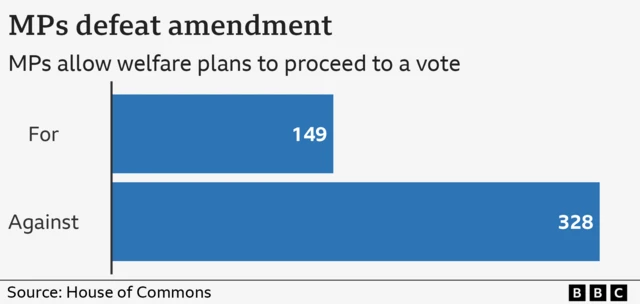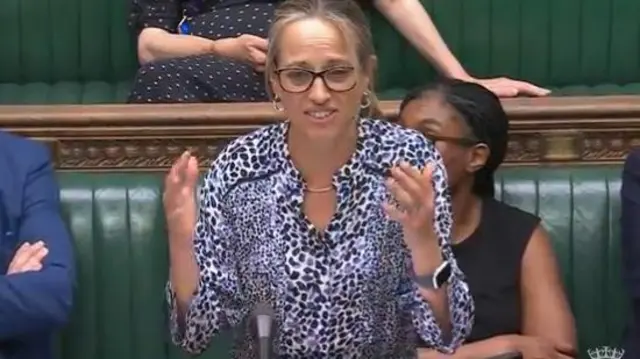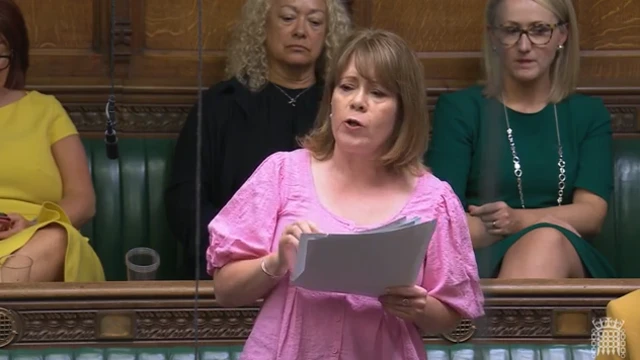Politicians react to vote outcomepublished at 20:43 BST 1 July
 Brian Wheeler
Brian Wheeler
Reporting from the House of Commons
We've been hearing mere from politicians after the result of the vote was announced:
- Leading Labour rebel Richard Burgon tells me he still thinks the bill could be defeated when it moves to its next Commons stage "if the government doesn't deliver on its promises"
- Liberal Democrats leader Ed Davey tells PA news agency: "This is no way to run a country" and urged the government to scrap the bill"
- Leader of Scottish Labour Anas Sarwar says he would "absolutely not" slash benefits for disabled people in Scotland if he became first minister
- Reform UK's Richard Tice lays into the “catastrophic” and shambolic” events of the past few hours. “What we should doing is targeting the abusers, the skivers, the idlers," he says
- Meanwhile Green MP Sian Berry says she will be watching the government very closely, and there is "every chance they will mess it up again by next week"


